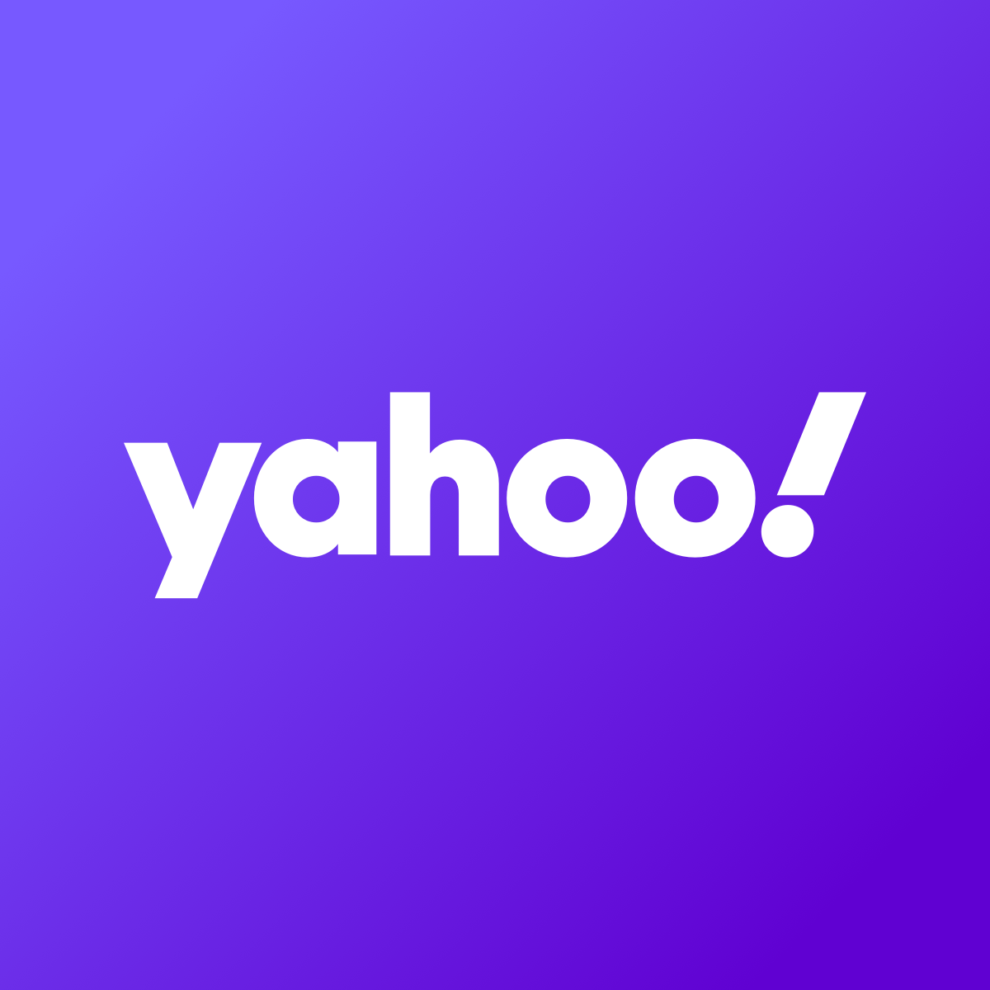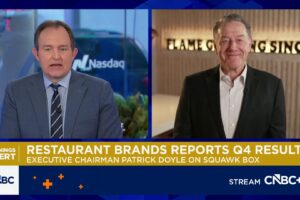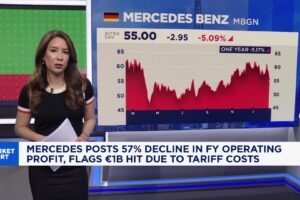
Participants
Brian Matthew Alger; SVP of Corporate Development & IR; Veritone, Inc.
Michael L. Zemetra; Executive VP, CFO & Treasurer; Veritone, Inc.
Ryan Scott Steelberg; Co-Founder, CEO, President & Director; Veritone, Inc.
Aaron Jacob Kimson; Associate; JMP Securities LLC, Research Division
Darren Paul Aftahi; MD & Senior Research Analyst; ROTH MKM Partners, LLC, Research Division
Koji Ikeda; VP & Research Analyst; BofA Securities, Research Division
Nicholas Paul Mattiacci; Associate Analyst; Craig-Hallum Capital Group LLC, Research Division
Presentation
Operator
Good afternoon, and welcome to the Veritone Inc. Fourth Quarter and Full Year 2022 Financial Results Conference Call. (Operator Instructions) Please note, this event is being recorded.
I would now like to turn the conference over to Brian Alger, SVP, Investor Relations and Capital Markets. Please go ahead.
Brian Matthew Alger
Thank you, and good afternoon. After the market closed today, Veritone issued a press release announcing results for the fourth quarter and fiscal year ended December 31, 2022. The press release and other supplemental information is available in the Investors section of Veritone’s website.
Joining us for today’s call are both the live and digital twin versions of Veritone’s CEO and President, Ryan Steelberg, and CFO, Mike Zemetra, who will provide prepared remarks and then open up the call for a live question-and-answer session.
Please note that certain information discussed on the call today, including certain answers to your questions, will include forward-looking statements. This includes, without limitation, statements about our business strategy and future financial and operating performance. These forward-looking statements are subject to risks, uncertainties and the assumptions that may cause the actual results to differ materially from those stated. Certain of these risks and assumptions are discussed in Veritone’s SEC filings, including its annual report on Form 10-K.
These forward-looking statements are based on the assumptions as of today, March 2, 2023, and Veritone undertakes no obligation to revise or update them.
During this call, the actual and forecasted financial measures we will be discussing include non-GAAP measures. Reconciliations of these measures to the corresponding GAAP measures are included in the press release we issued today. Also, when we reference pro forma measures, such measures are presented on a combined pro forma basis, treating PandoLogic, as owned by Veritone since January 1, 2021.
Finally, I would like to remind everyone that not only has this call been produced with Veritone Generative AI, but it is also being recorded and will be made available for replay via a link in the Investors section of Veritone’s website at www.veritone.com.
Now I’d like to turn the call over to the digital twin of our CEO and President, Ryan Steelberg. Ryan?
Ryan Scott Steelberg
Thank you, Brian. Good afternoon. (foreign language) As Brian noted, I am Ryan’s digital twin, powered by Veritone Generative AI. We are happy to speak with you today and to provide an update regarding our fourth quarter and full year 2022 results.
Given this is my first earnings call as CEO and President, I want to take a moment to discuss the initiatives we will be prioritizing. Although Veritone will always be driven by our software and technology innovation, we are doubling down on our focus in the markets where we have established clear differentiation and product market fit, resulting in disruptive efficiency and productivity gains for our customers.
According to various third-party estimates, these markets already represent tens of billions of dollars in opportunity for our applications, solutions and services and through focus, we expect to capture greater share and revenue growth.
Entering the third month in my new capacity, we have already implemented a number of operational and organizational changes designed to more tightly align our go-to-market and technology development with our customers’ needs. Together with the executive leadership I am pushing for operational excellence in everything we do, from hiring to employee engagement and of course, product development and sales.
The entire leadership team is aligned behind a heightened attention to productivity and operational excellence. We are committed to driving Veritone to sustainable profitability through growth and innovation. While these changes are largely internal and not yet evident to those outside the company, we expect the end result will be improved customer engagement and consequently, more profitable growth.
For the fourth quarter and full year 2022, Veritone reported revenue of $44 million and $150 million, respectively. Q4 new bookings reached another record of $20 million, up 141% year-over-year. Our year-over-year customer count grew 21% to 642 and our gross revenue retention continued to be strong in the high 90th percentile.
As we will detail, our commercial businesses powered by Veritone aiWARE, continue to be our foundation and clear differentiation in the market, providing the bulk of the revenues and profits for the business. That said, our investments in government and regulated industry solutions outside of energy, which I will speak to in a moment, are showing signs of more material traction with Q4 2022 GRI bookings growing both sequentially and year-over-year.
Against a challenging global market in 2022, we have taken a number of actions to set our course and refocus the company for sustainable and profitable growth. During the fourth quarter, Veritone took the decisive action of buying back $60 million of our convertible debt for a total cost of just over $39 million, substantially improving our balance sheet and signaling high confidence in our business and outlook towards profitability.
Post this debt repurchase, we remain well capitalized with $184.4 million in total cash and cash equivalents as of December 31, 2022. We ended the year with unencumbered cash of $91 million and our November 2026 total debt outstanding is now just $141 million.
In January, we announced a number of strategic initiatives that are already in motion, including the addition of key management talent, organizational realignment, various cost reductions and the divesting of the energy business. The net result of these actions is that Veritone is more capable, focused and efficient in its operations.
Our go-to-market and engagement with customers and partners is more tightly aligned as we drive value.
With the recent increase in AI awareness from the emergence of generative AI and ChatGPT, Veritone is driven to continue to innovate and deploy market-leading and trusted AI applications and solutions.
In mid-February, we announced Veritone aiWARE’s native support of generative AI models, detailing several use cases where generative AI is being utilized today in production with our customers. While the advancements and significance of the new public large language models or LLMs, cannot be overstated for Veritone, conversational AI in these LLMs and domain-specific LLMs as a class are another set of powerful models for aiWARE to utilize in delivering game-changing products and solutions to our customers.
We believe generative AI improves the customer experience and as a result, should accelerate adoption of AI solutions and services for both new and existing customers. We have consistently maintained that artificial intelligence in good times and bad will continue to thrive.
Our 21% growth in customers and 141% bookings growth are concrete evidence that, that belief continues to be valid. Importantly, the customer and booking strength was balanced across all of our offerings, further diversifying our business.
Now let’s get into more of the operational details of our fourth quarter results, kicking off the business review with commercial enterprise. Fourth quarter 2022 commercial enterprise revenues of $42.8 million increased 18% sequentially but were down 21% year-over-year.
Excluding Amazon, Q4 2022 commercial enterprise software and services revenues were up more than 70% year-over-year, while Managed Services revenues were up 12%. On the full year, commercial software and services revenues grew over 54% without Amazon, and Managed Services revenues grew 17%. Stated more plainly, our 21% year-over-year growth in customers and otherwise growth in commercial revenues was strong as we continue to minimize the concentration risk of one customer.
Our recent deals with The Masters, Candle Media, Fox, Stats Perform and Odyssey are all examples of our ability to expand and diversify in this dynamic operating environment. By growing our customer base and continuing to deliver superior products and services, Veritone will grow stronger and less susceptible to the actions of a single customer or even a single end market.
Moving on to government and regulated industries or GRI. GRI revenues were relatively flat at $1.2 million in Q4 and $3.8 million on the full year. That said, bookings strength, broad customer engagement and new product and market initiatives indicate that our investments in GRI end markets are gaining traction at an accelerating pace. At the state and local level, we continue to sign law enforcement agencies near daily. Moreover, our suite of offerings is driving increased product penetration with virtually no churn.
Last quarter, we closed a 3-year 7-figure SaaS contract to provide services to a statewide agency, the California Highway Patrol. And since signing the contract has already been upsized. In the fourth quarter, we introduced redaction as a service, which is not only improving our revenue opportunities, but it is also accelerating the sales cycle with numerous agencies that are understaffed and already overwhelmed with content.
In the fourth quarter, we also announced the general availability of Veritone Tracker, a unique person of interest detection and tracking solution that does not require biometric face identification. It is already attracting interest across our entire government customer base, including federal, state and local agencies as well as some of our commercial customers.
Coming into 2023, a primary focus is on growing the business with existing customers and diversifying with new customers in the markets that we have established clear product market fit and productivity gains for our customers.
Before handing the call over to Mike to go through the financials in more detail, I want to address the difficult decision to divest our energy group, while the potential of the energy market continues to be attractive and growing, our energy business has underperformed.
Our decision demonstrates that we are focused on markets with stronger product market fit and traction. Those of you who have followed Veritone for a while know that the company’s name is derived from Latin, meaning truth in the signal. As we have all witnessed over the past several months, there is a lot of noise around AI.
Veritone provides applications, solutions and services to our customers that eliminate the noise and simply improve their processes and outcomes at significant margins to Veritone. Today, we are clearly an established leader in delivering AI-enabled results to more than 600 commercial customers with strong customer growth and retention, we expect to extend that lead not only in our commercial markets but also with our targeted government and regulated clients as well. The people we have attracted and the technology we continue to develop are the foundational elements for Veritone to capture and dominate our targeted markets.
Now I would like to hand the call off to Mike Zemetra, our CFO, to go through the financial results and guidance. Take it away, Mike.
Michael L. Zemetra
Thank you, Ryan. I am excited to report that we continue to make substantial financial progress, ending the year with solid customer metrics and contributions made across our Software Products & Services and Managed Services. This includes our second time reporting positive non-GAAP income in Q4 2022 and ending the year with a much improved balance sheet and cash in excess of $180 million.
During my prepared remarks, I will discuss our fiscal 2022 and Q4 year-over-year performance and KPIs, our December 2022 debt buyback and Q1 and fiscal 2023 guidance, highlighting the scalability of our revenue and business risks heading into fiscal 2023, focus on near-term profitability and projected full year results.
Starting with full year 2022 performance. Revenue was a record $149.7 million, up 30% year-over-year from $115.3 million in 2021. This growth was driven largely by Software Products & Services which increased $25.1 million or 42% to a record $84.6 million in revenue and secondarily from Managed Services, which increased $9.4 million or 17%.
The increase in Software Products & Services was driven largely from the Q3 2021 acquisition of PandoLogic and 30% organic growth from legacy software product and services revenue, led by growth in commercial media and entertainment.
On a pro forma basis, fiscal year 2022 revenue increased slightly by 1% from 2021 pro forma revenue of $148.1 million. Driving this pro forma variance was Software Products & Services, which decreased $7.8 million or 8%, offset by the $9.2 million increase in Managed Services. The pro forma decline in Software Products & Services was driven by our hiring solutions which decreased $13.8 million or 19% year-over-year, offset by the increase in organic Software Products & Services of $6.4 million or 30%.
Our hiring solutions revenue declined on a pro forma basis due to a year-over-year decrease of 38% from Amazon, our largest customer, offset by revenue growth of over 78% from other hiring solutions customers. Apart from Amazon going through its well-publicized post-pandemic changes, our hiring solutions customer growth has been a monumental 80% since we acquired PandoLogic through December 2022.
As I will discuss later in our guidance, while we expect a strong jobs economy throughout 2023, including continuing new and existing customer growth across our hiring solutions platform, we are projecting revenue from Amazon to be slightly down year-over-year as we settle into the post-pandemic higher interest rate and inflationary economy throughout 2023.
In 2022, Amazon represented approximately 25% of our consolidated revenue, down from approximately 40% of our pro forma 2021 revenue. We expect customer growth and strong net revenue retention to further reduce the revenue concentration in 2023.
As a percentage of total revenue, Software Products & Services represented approximately 56% of consolidated revenue in fiscal 2022 versus 62% in fiscal 2021 on a pro forma basis.
Full year non-GAAP gross profit reached $122.3 million as compared to $93.2 million in 2021, improving $29.1 million or 31%. This too was largely driven by the growth across our business, while overall non-GAAP gross margins improved to 81.7% in 2022 as compared with 80.8% in 2021, driven in large part by the mix of revenue growth in 2022.
Non-GAAP net loss was $15.9 million as compared to non-GAAP net income of $6.8 million in 2021, a decline of $22.7 million, driven by increased investments made in core operations most notably additions of sales and engineering staff made in the first half of 2022 and to a lesser extent, from corporate investments around new system launches and higher professional fees. This was to support our first year Sarbanes-Oxley compliance efforts as we exit emerging growth status in 2022, partially offsetting this was the year-over-year improvement in non-GAAP gross margin.
Overall, non-GAAP net loss was also down when compared to pro forma 2021 non-GAAP net income of $18.5 million driven by the aforementioned declines in our hiring solutions revenue, coupled with increased investments in our operations.
We opened 2022 with 560 full-time employees ramped up in the first half of 2022 to over 720 and with cost-cutting measures that began in the second half of 2022 and we are now at approximately 655 full-time employees or approximately 9% lower versus our height in mid-2022.
Now more specifically to Q4 2022 performance. Revenue was $43.9 million, down 20% or $11.3 million from Q4 of 2021, driven largely by Software Products & Services, which decreased 32% or $13 million driven by Amazon. Offsetting this decline was other Software Products & Services revenue, which collectively grew by $6.2 million or 60% year-over-year driven by overall customer growth over 120% net retention, excluding Amazon and gross revenue retention in the high 90 percentiles.
Overall, our revenue pipeline and long-term outlook remains strong. Our partner-driven channel strategy continues to deliver results with record new bookings of $20 million in Q4 2022, an increase of 141% from Q4 2021. With increased opportunities around our offerings within commercial enterprise and GRI, newer generative AI product applications around NLP and hiring solutions expanded Managed Services to now include redaction as a service and accelerated cross-selling opportunities across our platform, our future pipeline is at an all-time high, particularly in GRI where we expect to immediately begin realizing significant growth in the near and long term.
In Q4, we reported solid KPI results. New bookings were $20 million, up 141% from Q4 of 2021. Gross revenue retention continued to be in the high 90th percentile, and ending software customers were up 21% year-over-year. In Managed Services, advertising gross billings per active client increased to a record $823,000, up 32% over Q4 of 2021. Overall, Q4 2022 advertising revenue continued to outpace the prior year and exceeded industry growth in large part due to the performance nature of our advertising platform.
Q4 2022 non-GAAP gross profit reached $37.2 million, declining $11.7 million or 24% from Q4 of 2021, largely due to the decrease in our hiring solutions revenue. Overall, Q4 non-GAAP gross margins were 84.7% as compared with 88.6% in Q4 of 2021.
Software Products & Services non-GAAP gross margins benefit from the inclusion of our hiring solutions, which generate non-GAAP gross margins in excess of 90%. As a result, the overall non-GAAP gross margin came down in Q4 2022 as compared to Q4 2021. We expect consolidated non-GAAP gross margins to continue to exceed 80% throughout fiscal 2023 with sequential improvement each quarter consistent with the seasonality of our business.
Q4 non-GAAP net income was $2.2 million as compared to $17.0 million in Q4 of 2021, driven largely by the decline in revenue from our hiring solutions coupled with increased investments in sales and engineering personnel across our core operations in order to grow and scale our aiWARE platform and business. Q4 2022 corporate operations remained relatively flat year-over-year.
Turning to our balance sheet. At December 31, 2022, we held cash and restricted cash of $185.3 million compared to $255.6 million at December 31, 2021. The $70.3 million decrease reflects net cash outflows from financing and investing activities of $74.0 million, offset slightly by net cash inflow from operations of $3.7 million. During Q4 2022, we used $39 million to repurchase $60 million or 30% of our outstanding convertible debt, generating a net gain of $21.0 million.
In addition, net cash outflows from financing and investing activities included $21.7 million towards acquisitions, including $14.4 million of cash towards PandoLogic’s 2021 earnout, $9.8 million in net share settlements of equity awards and $4.8 million in capital expenditures.
Net cash inflows from operating activities of $3.7 million consists of net positive changes in our working capital of $24.9 million, principally associated with the growth and timing of payments in our Managed Services largely offset by our $15.9 million non-GAAP net loss in cash interest and taxes paid in 2022. Of the total $184.4 million in cash, approximately $93.1 million of our reported cash is essentially held for payments to third parties from our Managed Services. We ended December 31, 2022, with 36.3 million shares outstanding and convertible debt of $141 million principal, 1.75% interest due November 2026.
Looking ahead to Q1 2023, I want to point out onetime cash and stock items. As a reminder, in the second half of 2022, we negotiated a settlement on PandoLogic’s 2022 earnout of approximately $8 million in cash and $135,000 of Veritone’s stock payable in Q1 2023. When aggregated, the final consideration paid for the PandoLogic acquisition was approximately $115 million in total or $35 million less than the target price of $150 million. If we average the last 2 years of revenue, this comes to a price around 1.8x revenue.
Turning to financial guidance for Q1 and fiscal 2023. Fiscal 2023 is shaping to be a challenging year with the backdrop of a possible recession, given inflationary and interest rate pressures. Taking these macro factors into consideration, we approached our 2023 planning with a very conservative approach on revenue with heightened discipline around costs as we march towards profitability.
In February this year, we announced $12 million to $15 million of annualized cost savings initiatives, which included cutting back on certain operating expenses headcount reductions; and finally, the divestiture of our energy group, which we are tracking to finalize in the first half of 2023. I’m happy to report that we’ve executed on approximately $7.5 million of annualized savings through today or approximately 50% of the high end of our stated range and expect to continue to update you on further progress when we announce Q1 earnings in May 2023.
With that backdrop, we are guiding Q1 revenue to be between $29.5 million and $30.5 million, representing an 11% decrease year-over-year at the midpoint. Driving this decline is our high-volume hiring solutions, including Amazon, who have returned back to non-pandemic hiring trends in Q1 2023 versus Q1 2022. As a result, we expect our Q1 2023 hiring solutions revenue to be down as much as 50% year-over-year in Q1 2023 returning back to more seasonal trends in Q2 and in the second half of 2023. Offsetting this will be GRI, which we expect to improve at or above 100% in Q1 2023 versus Q1 2022 driven by new and existing customer growth.
Our Managed Services is expected to be fairly flat in Q1 2023 versus 2022 with expected advertising revenue to remain comparable in the first half of 2023 versus 2022 given the current economic environment.
Risks to our Q1 revenue guidance include execution on new enterprise deliverables, namely across GRI, which can be unpredictable and our concentration of Amazon, which usage of our hiring platform can vary.
And Q1 quarterly non-GAAP net loss to be between $8.5 million and $9.5 million, which is down by $3.8 million versus Q1 2022 driven by the previously discussed year-over-year decline in our hiring solutions revenue. As a reminder, Q1 is our seasonally lowest performing quarter as the majority of our costs are fixed and payroll driven.
For full year 2023, we expect revenue to be between $158.0 million and $168.0 million, representing a year-over-year increase of 9% at the midpoint.
As a reminder, and given current economic outlook, we are forecasting our revenue conservatively in 2023, including a year-over-year decline of approximately 10% from Amazon, certain onetime software sales revenues in 2022 that are not recurring in 2023 and the disposition of our energy revenue and group in the first half of 2023.
If we exclude the impact of these, our revenue guidance would be over 20% improvement in 2023 versus 2022.
Risks to our annual revenue guidance include the macro economy and the result of continued inflation and higher interest rates on our customers’ execution on new enterprise deliverables namely across GRI and continued customer growth and retention metrics from our Software Products & Services.
We expect full year non-GAAP net loss to improve substantially in 2023 and be between $7.0 million and $1.0 million as we continue to progress towards profitability. At the midpoint, this represents a 75% improvement when compared to fiscal 2022 non-GAAP net loss.
Before I close, we will be speaking at the following investor conferences: The JMP Securities Technology Conference in San Francisco on March 7 and the 35th Annual ROTH Conference in Dana Point on March 13 and 14. That concludes my prepared remarks.
Operator, we would like to now open up the call for questions.
Question and Answer Session
Operator
(Operator Instructions) Our first question is from Darren Aftahi of ROTH MKM.
Darren Paul Aftahi
Two, if I may. First, you guys sound pretty enthused about kind of your outlook for GRI. I’m just kind of curious, could you speak to that enthusiasm and maybe touch on — I know you guys launched the — your Tracker product for forensics in the fourth quarter and just kind of how that kind of plays into that? And my second question is just given the HR product you guys have and it kind of being a defensive mechanism and more of a lower growth environment, even though there’s hiring going on. Can you just kind of speak to trends in that business maybe outside of Amazon and some of your core customers?
Ryan Scott Steelberg
Great. In GRI, we’ve put out a few releases, and we’ve updated you in the past that our strength and growth in local law enforcement at the city level and the county level and even now at the state level has continued to accelerate in pace. So today, we have hundreds of customers. We’re signing new customers, almost daily. But however, historically, the products that we’ve been taking to market have been lower ticket item sales. We love the fact that aiWARE provides a very extensible platform to help us onboard customers who have limited budget to start investing in and improving their operations using AI. But on the flip side, we really were looking for opportunities to increase. We have this great relationship. We have great product market fit and a good brand in the space. And Tracker is one of the solutions that we’re excited about to take to market where we do expect larger and higher ticket item opportunities.
So in addition to that, some of the longer-term deals that we’ve been working on, right, in state and local law enforcement specifically, have just started to come to close. As you know, the space takes a long time. We were — and we did disclosed earlier in the prepared remarks, about the California Highway Patrol and a statewide deal with them as it relates to our SLED based products. And so we are, we’re very optimistic. We’ve been able to continue to grow the pipeline and now we’re seeing the results of that while maintaining pretty cost discipline in the area.
But again, I think Tracker, we’re already in discussions with most of our customers about this new solution, which is proprietary with groups like BART up North and the Department of Justice and a multitude of different local law enforcement agencies across the country.
On the — as it relates to HR talent acquisition solutions, PandoLogic, as we stated earlier, they’ve had significant growth quarter-over-quarter — I’m sorry, year-over-year against the fourth quarter of over 60% on for non-Amazon business. So we have great product market fit there.
The revenues and the new customer growth for non-Amazon business continues to accelerate, and we’re very bullish on that market. We think the tight labor market is going to keep that side of the business strong and healthy, and we’re going to continue to invest in that area. And we do feel that we have very clear product market fit and competitive differentiation against a few of the smaller competitors.
And again, the saturation of programmatic or another way of saying is the adoption of programmatic into the HR talent acquisition space is still incredibly low. So we’re very early in the curve, and it’s a big market as we touched on just the programmatic advertising spend for job acquisition in the U.S. is over $85 billion per year. So it’s a good market opportunity for us that we’re going to continue to invest heavily in.
Operator
The next question is from Koji Ikeda of Bank of America.
Koji Ikeda
I actually kind of wanted to follow up on that GRI segment. And you’re guiding to some pretty good growth there. But also in the prepared remarks, you talked a little bit about deliverable risk. I was wondering if you could just describe what that deliverable risk is for the GRI segment.
Ryan Scott Steelberg
There are some areas where — let’s say, some of the agencies are looking or making decisions on whether we could deploy aiWARE in a commercial cloud instance. As you may recall, aiWARE was built to be platform agnostic from either on-prem or Azure or Google Cloud or AWS. And despite the fact that we are fully deployed on Azure Gov or Fed, a lot of different agencies are just, frankly, trying to figure out where against the certain or ever-changing security protocols that they’re under, can they deploy and start running aiWARE and the respective SLED applications in a public cloud versus a government cloud environment.
And so it’s more of not a technical limitation, but at times, it’s just a positioning or security changes that really every municipality is trying to grapple with.
In terms of Tracker, Tracker is a new product. So we have tried and true products as it relates to the SLED market for the products of contact and redact and illuminate. Tracker is a new product. We’re just now starting to sell it into the marketplace. I think we have been conservative in our forecasting as it relates to the contribution of Tracker for 2023. But again, there — because it is a brand-new product, we just wanted to be a little bit conservative and there is some, I’d say, the deployment risk greater than 0 because of the new nature of the product.
Koji Ikeda
Got it. Ryan, that’s super helpful. And just a follow-up here. I’m going to ask you the generative AI question with all the hype surrounding it, and I did see you guys have a press release around it. Just curious if you could talk a little bit about, if this generative AI has affected your pipeline positively or negatively? And maybe more importantly is, has this maybe opened the door to conversations into end markets where you haven’t had much penetration before?
Ryan Scott Steelberg
Well, let me start by saying that our team, thankfully, has — again, we are not just a very quick and nimble company to react to market changes and opportunities. But we have had pretty good foresight on certain areas and key technology trends. We started working with large language models, specifically earlier versions of GPT going back to 2019. Our conversational AI framework and technology stack in our HR solutions business, formerly known as Wade & Wendy is actually both a combination of domain-specific large language models, think of them as proprietary ChatGPTs, if you will in conjunction or orchestrated with public large language models like ChatGPT.
So first — so first, this is not new to us. This is something that we’ve been seeing and actually building and deploying now for years.
The second thing that we’re thrilled about is we are — we don’t — I don’t want to underestimate or understate the importance of these large language models as they’re coming to market. But for us, as we’ve designed and as Chad and team have designed aiWARE going back in rears, this really is just — and again, I don’t want to minimize it, but just another class of AI models that we can readily deploy and immediately activate through aiWARE.
And that’s what you’ve seen. So when we announced just a couple of weeks ago to formally kind of consolidating all the things we’re doing in generative AI, including synthetic voice, under what we’re calling Veritone Generative AI, those were real production use cases that we showed. So we are both active in generating revenue as it relates to our generative AI deployment on aiWARE.
And you’re right, it has absolutely opened up a lot more broader app discussions, not just potentially with new customers, which is absolutely the case, but with existing customers.
So today, in our discussions with large media groups like CBS News and others is, again, as kind of their trusted AI wilderness guide, which I’ll kind of conclude and talk about that at the end of the remarks today. But we are already working with them on ideating and figuring out how we can immediately deploy and take advantage of these generative AI solutions against the content that we already have.
So one of the big benefits we have is we’re sitting on petabytes and petabytes of our client data, as you know, for audio video content in other forms of structured data. So our ability to immediately activate and take advantage of these new or any new type of AI models, including these large language models, is we’re prepared to act efficiently, quickly and cost effectively and deliver scalable production-based use cases and solutions in weeks instead of frankly, coming out with a press release and planning for the future.
Operator
The next question is from Patrick Walravens from JMP Securities.
Aaron Jacob Kimson
This is Aaron Kimson on for Pat. First off, can you guys elaborate on the rationale for divesting the energy business? What were your learnings there? And what does it show investors about the company’s current priority?
Ryan Scott Steelberg
Yes. The energy market and really the product market fit we had, it was appealing and we had some early indications that we had a decent product market fit for us to really trying to build and deploy solutions to optimize the energy grids and to help orchestrate the input and distribution of green energy-based solutions and renewables on to legacy grids.
That being said, it was an expensive initiative that was not performing up to the growth and scale as other areas of the business. And so as we were looking at areas starting — really the middle of last year, of areas where we could start to save money, but be able to repurpose that focus and those resources on to other areas, specifically, as we aforementioned, such as generative AI and synthetic voice in other areas of investment, we just felt it was a better appropriation of resources and focus, not just at the coder line level, but at the management level, that if we had to make a tough decision, energy with its nascent positioning so far for us as a company was one of the areas on the chopping block that we felt was — it just shouldn’t be part of Veritone (inaudible).
We’re not closing the door to be clear on the energy opportunity, but those will most likely be through strategic partners, such as Deloitte and others as opportunities arise as compared to Veritone direct going after and building proprietary applications and services for that industry.
Aaron Jacob Kimson
Very helpful. And then maybe just a follow-up for Mike. What are the key points you have made to investors on the balance sheet after the repurchase of the convertible debt at the end of November. Would you be open to doing a second repurchase kind of like bandwidth did earlier this week.
Michael L. Zemetra
Yes. I mean, I think we’re always going to be opportunistic in terms of use of our cash. And I think taking down 1/3 our debt was fiscally responsible and tied into our confidence in our outlook in terms of the operations.
As far as going forward, again, if opportunities arise and it makes sense, we’re certainly open to doing more. But at the moment, we’re not looking into it.
Operator
The next question is from Nick Mattiacci of Craig-Hallum.
Nicholas Paul Mattiacci
This is Nick on for Chad Bennett. So if you could remind us on the non-Amazon, PandoLogic portion of the business, just how the pricing and your visibility into revenues might differ from the Amazon relationship? And then maybe on that same subject, what are some of the verticals that you’re looking to this year to drive growth ex Amazon?
Ryan Scott Steelberg
Mike, do you want to take the revenue allocation distribution of Amazon versus non-Amazon?
Michael L. Zemetra
Yes. I mean the pricing in terms of the model isn’t highly differentiated. It may be differentiated by the target in terms of the candidate and where that candidate best gets filled. But as far as the overall model, it isn’t necessarily differentiated between Amazon and non-Amazon.
As far as targeted markets, I mean, there’s — we’re seeing a lot within health care, for example, shortages in nursing and things along those lines, transportation. Other markets that really are non-technology driven that are continuing to expand.
I think a lot of what you’re reading in the news in terms of recession and layoffs has been principally driven in the technology market, whereas if you look at retail, health care, transportation and other markets, they’re continuing to grow.
In addition, we’re also going to be cross-selling and we are actively cross-selling the product in the government, which is the largest hiring entity in the U.S.
Ryan Scott Steelberg
Yes. We’re already into the phase of contracting the hiring solutions with and into state and local law enforcement, which we’re very excited about. .
In addition, the other areas — so against the pullback of Amazon, as we articulated, we’re confident in offsetting that again with the growth of the non-Amazon enterprise business for our HR-based solutions.
And then an additional, our refocus and on the verticals that we do have strong product market fit and strong traction already have very good and solid SAM and TAM. So as we have already addressed HR and the talent acquisition budget of over $85 billion in the U.S. alone is a great growth opportunity for our enterprise businesses in our HR talent acquisition solutions.
And then also just one segment of the opportunity in media and entertainment is the localization of content. As we’re going in advancing in terms of globalization of content and media, both exporting U.S.-based content media assets, but also importing foreign language content. The localization business is expected to increase. This is already a $54 billion a year industry, just the localization of content. And obviously, we’re right in the middle of it with a very, very tight and specific product market fit solutions to help accelerate that.
And so those are 2, obviously, media entertainment and we do continue to see as a growing opportunity for us, including our licensing business, which we touched on earlier today. And we are — we remain very bullish on our enterprise business for our HR talent solutions, considering the tight labor market and the clear ROI benefits that our programmatic solution brings to bear on that opportunity.
Nicholas Paul Mattiacci
Got it. And then if you could just touch on your expanded relationship with Deloitte. I know it’s still pretty early, but any indications of traction thus far with Deloitte and where we might see that show up in the results.
Ryan Scott Steelberg
Deloitte is still the most active in our GRI side, focused primarily on different areas of Fed, mostly Fed SIV and some on the Fed DoD side. We are in discussions on expanding utilization of aiWARE and other solutions as it relates to TMT in areas for potential localization, synthetic voice and other areas. .
But again, we’re — obviously, we’re not reliant — we do have a very growing, expanding channel opportunity, working with dozens, if not like over 50 different channel partners today. So it’s definitely not limited to Deloitte, but we do expect Deloitte to continue to be a growing partner for us for the foreseeable future.
Michael L. Zemetra
Maybe just to echo that, more recently, we’ve actually expanded more partnerships with both Amazon and Azure. So this is definitely — this partner-driven model is highly successful for us.
Ryan Scott Steelberg
Yes.
Operator
There are no additional questions at this time. This concludes our question-and-answer session. I would like to turn the conference back to Ryan Steelberg for closing remarks.
Ryan Scott Steelberg
Thank you, operator. As I enter my third month in this new capacity as CEO, I am excited about and very confident in Veritone’s future. Over these past several years, we have built Veritone and aiWARE to really set the class for enterprise AI software and solutions.
Our strong and diverse customer base are consistently high gross margins, our elite customer retention rates and most importantly, our dynamic and talented staff should provide our stakeholders with strong optimism for our specific future.
As we all know, aiWARE and can be very cluttered and confusing for many. And then obviously, it’s gotten very noisy recently with the generative AI. So we truly believe that Veritone is the trusted AI wilderness guide for both new and existing enterprise customers.
And again, we can — we have confidence in that because, again, of our high retention rates and obviously against non-Amazon business and actually over 120% in net retention growth revenues. So again, we’re going to finish this — wrap up this by reiterating our focus for 2023, which is all about operational excellence, that means that it’s getting our — continuing to get our house in order, inclusive of becoming more efficient and cutting costs.
Our renewed focus on the successful markets that we’re in with strong product market fit, such as HR talent acquisitions, TMT and GRI and a continued and passionate technology innovation and technology-driven company that we will always be at the forefront of bringing the latest and most reliable, most scalable AI-based solutions to the market.
So thank you for your attention today, and I look forward to communicating with you in the future.
Operator
The conference has now concluded. Thank you for attending today’s presentation. You may now disconnect.











